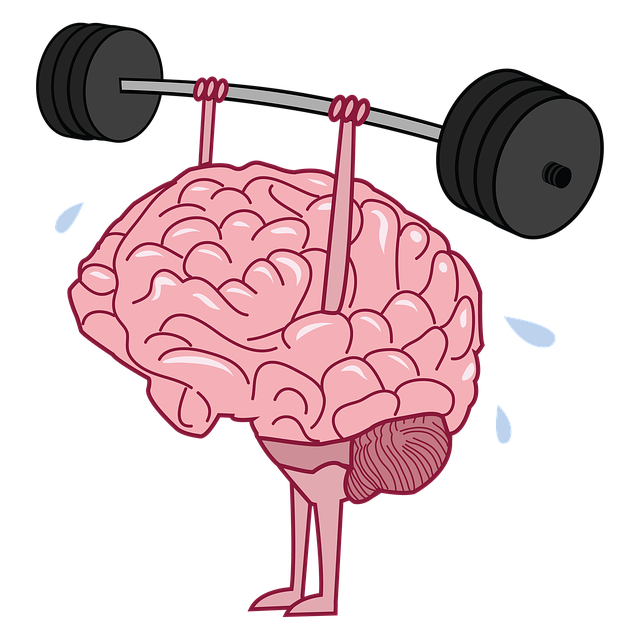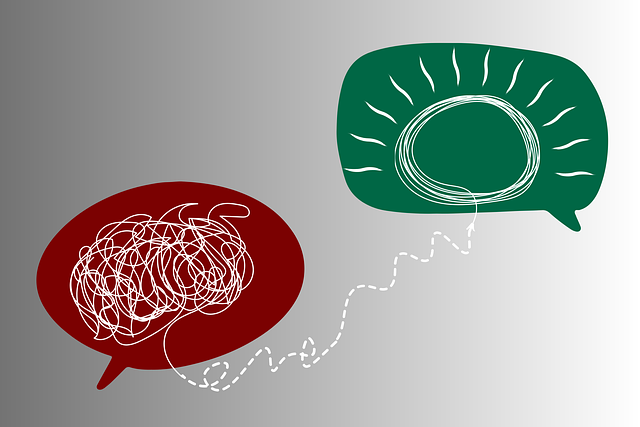Public awareness campaigns using creative strategies like social media, community events, and peer sharing significantly impact societal perceptions and behaviors regarding mental health, especially among young adults. Acceptance and Commitment Therapy (ACT) is an effective approach that encourages psychological flexibility by accepting thoughts and emotions without judgment. Integrated with Social Skills Training, Emotional Intelligence programs, and healthcare provider cultural competency training, ACT offers a comprehensive solution to support diverse populations, addressing the growing mental health needs of younger generations. Key components for developing ACT campaigns include engaging narratives, social media leverage, and programs like Trauma Support Services, all while normalizing conversations around mental health through interactive content.
Public awareness campaigns play a pivotal role in shaping mental health discourse, especially when tailored to address pressing issues like those faced by young adults. This article delves into the significance of such initiatives, focusing on Acceptance and Commitment Therapy (ACT) as a potent tool for improving mental well-being. We explore how therapy for young adults can be effectively delivered through ACT-based public awareness campaigns, highlighting key components and best practices for maximizing impact.
- Understanding Public Awareness Campaigns: Their Role and Impact on Mental Health Initiatives
- Therapy for Young Adults: Acceptance and Commitment Therapy (ACT) as a Core Strategy
- Developing Effective ACT-Based Public Awareness Campaigns: Key Components and Best Practices
Understanding Public Awareness Campaigns: Their Role and Impact on Mental Health Initiatives

Public awareness campaigns play a pivotal role in shaping societal perceptions and behaviors, especially when it comes to mental health initiatives. These campaigns act as catalysts for encouraging open conversations about mental well-being, reducing stigma, and promoting accessible support systems. By utilizing creative strategies such as social media platforms, community events, and peer sharing, they foster a sense of understanding and empathy among the public.
One effective approach that has gained traction is Acceptance and Commitment Therapy (ACT), which focuses on helping young adults develop psychological flexibility. This therapy encourages individuals to accept their thoughts and emotions without judgment, fostering a more positive relationship with themselves. As part of awareness campaigns, promoting ACT can boost confidence in managing stress and prevent burnout, crucial aspects of healthcare provider well-being, especially when addressing the growing mental health needs of younger generations.
Therapy for Young Adults: Acceptance and Commitment Therapy (ACT) as a Core Strategy

Acceptance and Commitment Therapy (ACT) has emerged as a powerful strategy within public awareness campaigns aimed at young adults. This form of therapy encourages individuals to embrace their experiences, thoughts, and emotions without judgment, fostering a sense of acceptance. By promoting this mindset, ACT equips young adults with valuable tools to navigate life’s challenges. For instance, it helps them identify and prioritize values, enabling them to take meaningful actions in line with these personal guiding principles.
Integrating ACT into public health initiatives can be highly beneficial. Social Skills Training and Emotional Intelligence programs often complement ACT by teaching specific techniques for managing emotions and enhancing interpersonal interactions. Moreover, healthcare provider cultural competency training ensures that professionals working with young adults are equipped to deliver this therapy effectively, addressing the unique needs of diverse populations.
Developing Effective ACT-Based Public Awareness Campaigns: Key Components and Best Practices

Developing effective public awareness campaigns centered around Acceptance and Commitment Therapy (ACT) requires a strategic approach to educate and inspire young adults. These campaigns aim to promote mental wellness, emphasizing the importance of early intervention and therapy as powerful tools for overcoming challenges like trauma. By combining evidence-based practices with engaging narratives, campaigns can effectively reach their target audience.
Key components include storytelling that resonates with young adults’ experiences, utilizing social media platforms and peer support networks for widespread reach. Incorporating elements such as Trauma Support Services, Social Skills Training, and Mental Wellness Coaching Programs Development can foster a sense of community and normalize conversations around mental health. Best practices involve collaboration with therapists and experts to ensure accuracy, and leveraging interactive content like videos and workshops to enhance understanding and encourage help-seeking behaviors.
Public awareness campaigns, especially those centered around Acceptance and Commitment Therapy (ACT), play a pivotal role in addressing mental health issues among young adults. By incorporating key components such as clear messaging, engaging visuals, and evidence-based strategies, these campaigns can effectively foster understanding and encourage sought-after therapy. As we’ve explored, understanding the target audience and tailoring content to their needs is essential for success. Moving forward, ongoing evaluation and adaptation will ensure that ACT-based awareness initiatives continue to make a significant impact on the mental well-being of young adults in need of therapy.












